Protecting Your Pets During Natural Disasters
We all know that Australia is a beautiful place to live, but extreme weather can come with the territory.
From bushfires to cyclones to dangerous flooding, there are a number of emergencies that you need to prepare for — especially if you have pets.
Don’t worry; we’re here to help. Rossmore Veterinary Hospital has the knowledge, experience, and resources you need to guide you through this scary scenario.
Want to make sure your pet is safe and sound, no matter the weather? Read on to learn more.
Understanding Natural Disasters and Pets
Before you can begin properly prepping for an emergency, you need to understand the particular risks at hand.
Here are some of the natural disasters that we face in Australia:
- Heatwaves
- Bushfires
- Droughts
- Floods
- Severe storms and tropical cyclones
- Earthquakes
- Landslides
Why does my pet react differently in extreme weather?
You may notice changes in the behaviour of your pets during an extreme weather event, including:
- Increased anxiety and a need for comfort.
- Being more sleepy — or conversely, more alert.
- More activity and acting skittish.
- Lack of appetite.
- Hiding in a quiet area of the house.
Why do they react this way? In most cases, their senses are much stronger than ours.
Dogs and cats can smell and hear changes in the weather. It’s why they may start to act differently before you can see or hear the first signs of trouble.
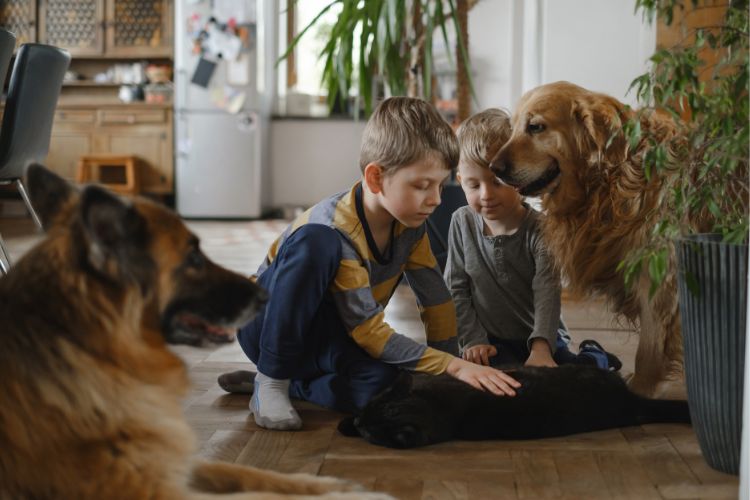
How different animals react
- Dogs: Dogs may become anxious and pace, bark, or hide. They will likely want to stay close to you for comfort.
- Cats: Cats tend to hide and like to seek out high, secluded spots to feel safe. They may not come out for food or water for a while.
- Birds: Birds can become extremely distressed and may even harm themselves in their cage. They might flap their wings frantically or chirp loudly.
- Rabbits: Rabbits are prone to stress and fear during extreme weather events and may refuse to eat. They may also try to find shelter in the smallest, most secluded spot they can find.

Creating a Disaster Preparedness Plan for Your Pet
It’s critical to have a disaster plan in place for your pets, especially if you live in an area that’s prone to extreme weather. In these events, our pets rely on us more than ever. It’s our job to keep them safe from harm.
So, what do you need to consider?
- Your pet needs to have access to plenty of food and fresh water.
- You should give them shelter or bedding of some kind for their comfort.
- You should be able to easily identify any and all pets under your care in the case of being separated in a rescue or evacuation.
- You can either have a microchip implanted (this is already mandatory by law for cats and dogs) into your animal or carry a current picture for easy identification.
- Your pets should be up to date on their vaccinations.
- You should have the contact information of your veterinarian or local animal welfare agency on hand.
- You should have an evacuation route in mind, along with reliable transport that can support you and your pets.

Essential Items for Your Pet’s Emergency Kit
A pet emergency kit is part of being prepared for a natural disaster. This should have all of the necessary supplies for your furry companion, including:
- Medication (we recommend around two weeks’ worth), veterinarian contact information, and medical and vaccination records.
- A sufficient amount of food (including treats) and clean bottled water for each animal (again, we recommend two weeks’ worth). Don’t forget to bring a can opener if you have tinned food.
- A familiar pet blanket or bedding, grooming equipment, and a couple of toys.
- A secure crate or other pet carrier, a collar and leash, and/or a harness to safely move your animal.
- Newspapers, paper towels, disinfectant, and rubbish bags to clean up your animal and their waste.
- Identification methods, such as current pictures or a microchip.
- A first aid kit for yourself and your animal(s).
The above supplies should apply to most household pets. If your pet is not a cat, dog, bird, or rabbit, you will likely have to make special arrangements ahead of time.
If you have a bird, keep in mind that they must eat daily. You should put food and water dispensers in their portable bird cage and have a cover to place over it for their comfort.
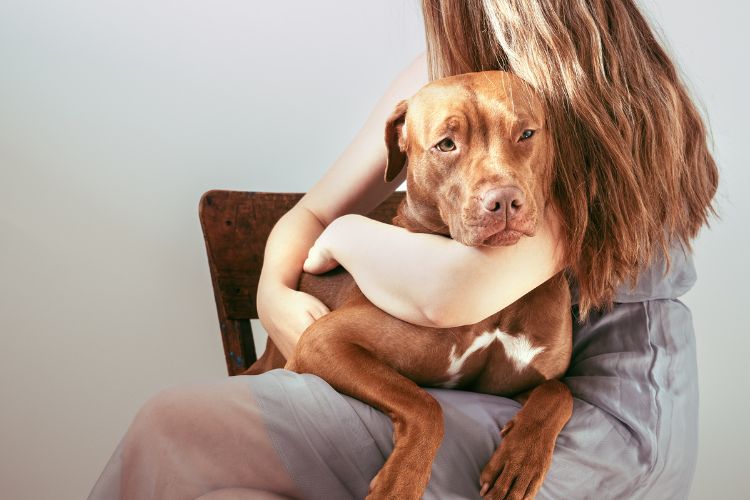
Keeping Your Pet Calm and Secure During a Disaster
First and foremost, you should NEVER leave your pets outside or unattended in the event of a natural disaster. They deserve shelter just as much as people.
If you need to evacuate, try to stay with friends or family in a safe area. If this is not possible, you can try to find pet-friendly hotels or shelters.
In any case, your pets will likely be distressed. Here are some tips to keep them calm:
- Create a safe space: For dogs, cats, and rabbits, make their cage or animal carrier comfortable with a blanket and pet bed. For birds, bring a cover for their cage. For any animal, make sure their food and water are easily accessible.
- Practise using carriers: Get your pets used to their cage or carrier. This will lessen their stress in the event of an emergency evacuation.
- Stay calm: Pets can pick up on our emotions. If you’re prepared, you’re more likely to stay calm, which will soothe their anxiety and bring them comfort.
- Familiar sounds: Playing calming music from your car radio or phone or putting a TV show on low volume from a portable device can give them a sense of normalcy.
- Comfort items: Bring at least one favourite toy, a familiar blanket, and treats.
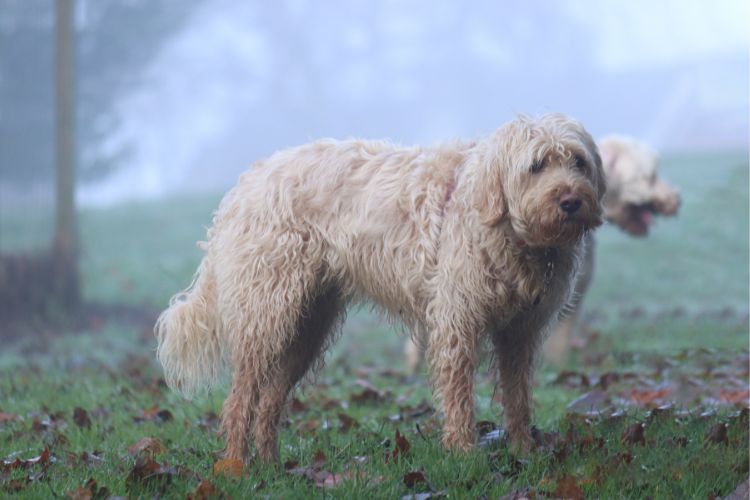
Post-Disaster Care and Recovery for Pets
Now that the emergency has passed, you need to make sure your pets are safe and in good health.
Once you’re home, you should check your property for hazards like sharp objects, debris, and contaminated water — basically, anything you wouldn’t want your pet near.
If your backyard area or home is compromised, then you should move your pets to a secure location. Look into local animal shelters for a temporary stay.
Next, you should observe their behaviour for signs of stress or trauma, such as:
- Hiding
- Aggression
- Changes in eating habits
- Other abnormal behaviours.
If they do show any of these signs, you should take the steps to get them assistance from a trusted veterinarian.
Speaking of your vet, communication is key. Keep them updated on your pet’s health and any potential risks you’ve noticed.
Finally, offer your pets comfort in familiar ways. Use their favourite things to help them readjust to normalcy.
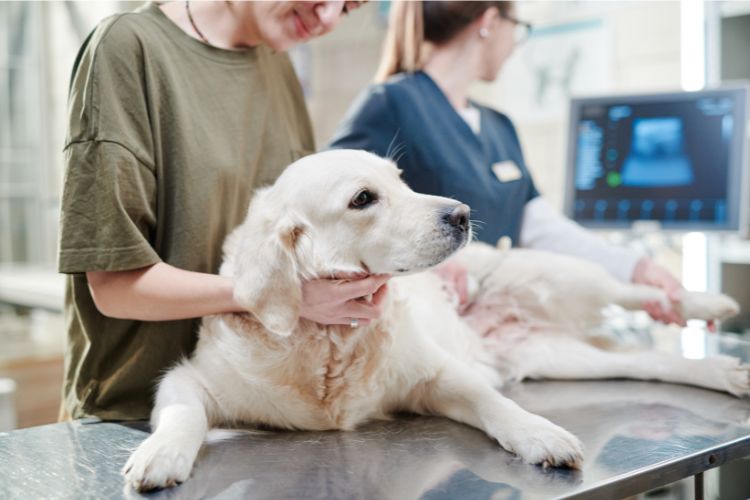
Rossmore Veterinary Hospital’s Role in Pet Disaster Preparedness
Whether you’ve escaped a flood or a wildfire, Rossmore Veterinary Hospital is here to help.
We can offer you our expert resources, advice, and information to keep your pets safe and sound, no matter what you’ve faced.
We also have after-hours emergency services to treat critical illness or injury, so all pet owners can rest easy knowing their loved ones are in safe hands.
Check out our website for more information and for links to important resources — like what you need for your emergency plan and the types of services we can offer when disaster strikes.
Your pet’s safety is our priority, always.
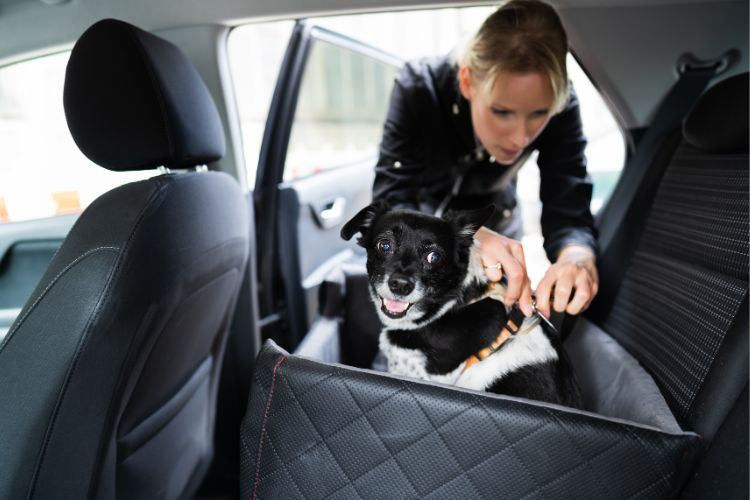
Don’t Risk the Safety of Your Pets: Stay Prepared For Emergencies
In the case of a natural disaster, ensuring your pet’s safety begins with a comprehensive evacuation plan and emergency kit.
Ensure you have a sturdy crate or carrier for easy transport, a leash, a collar with up-to-date tags, and a microchip or other form of easy identification.
Assemble an emergency kit containing essential supplies like food, water, medication, and comfort items to alleviate your pet’s anxiety. Secure a shelter or arrange with relatives in safe areas where pets are welcome.
Want more information and advice on what to do? If you’re in NSW, contact or visit your local Rossmore Veterinary Hospital for support, no matter what you and your pet are going through.
We’re here for you and your furry friends when the bad times come around. Get in touch with us today to make sure your emergency plan is ready to go.